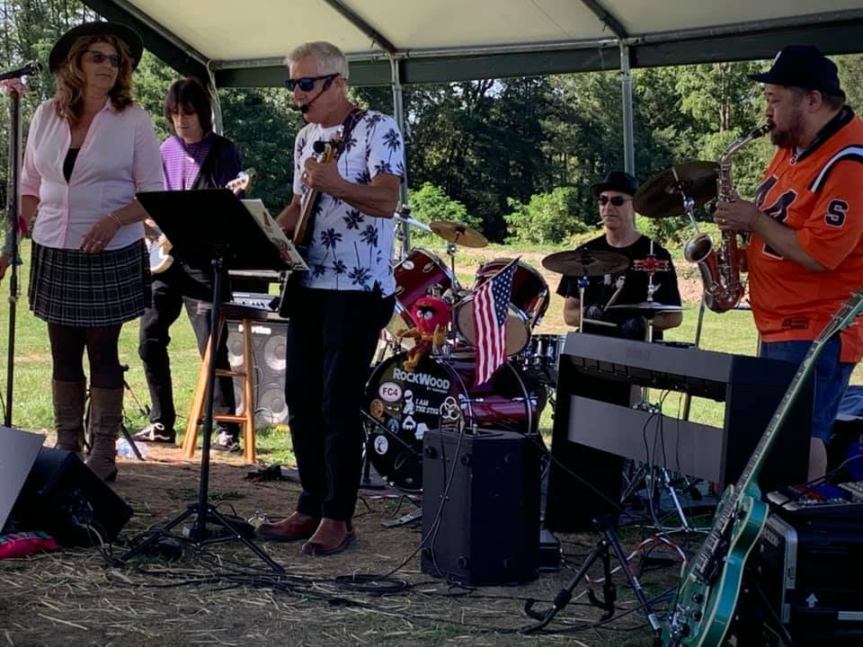I have a friend who is able to work remotely to the point that he can go wherever he wants and is still able to be productive. He has taken full advantage of that perk, and has traveled to parts of the world and experienced things that many of us only dream about. Granted, he's a single … Continue reading Business trip or pleasure? Why not both?
Category: Cultures
Goals for 2024
As I write this, we're already a few days into 2024. I hope everyone had a happy, festive, and safe holiday -- whatever holiday you celebrate -- as well as an equally festive New Year's celebration. For me, personally, New Year's Eve was a quiet evening in my living room along with my wife, and New Year's … Continue reading Goals for 2024
Worldstock #WorldPeace #UniteTheWorld #StopHate
For whatever reason, during my commute into the office this morning, my mind started wandering (as it usually does), and I started thinking about the conflicts throughout the world at the current moment: Israel vs. Hamas, Ukraine vs. Russia, and so on. And this is to say nothing about conflicts that have been ongoing for … Continue reading Worldstock #WorldPeace #UniteTheWorld #StopHate
Support your local public library
I remember when I was a kid, Tuesday was my favorite day of the week. That was because that was library day. One of my parents would take me and my siblings to the local public library where we would check out books and magazines, take them home to read, and bring them back next … Continue reading Support your local public library
#PASSDataCommunitySummit — day 2 debrief, and thoughts about the last day
It's Friday, and it's the last day of the Summit! This has been an amazing week! I always enjoy attending events like this, and PASS Summit is no different. It has been a great week of seeing old friends, making new ones, and attending some great sessions! I will be attending a couple more sessions … Continue reading #PASSDataCommunitySummit — day 2 debrief, and thoughts about the last day
Getting social with travel apps
Although I do not live in or near New York City, I've been there often enough that I feel comfortable about getting around, knowing where to go, and can often pass myself off as a native. (To my NYC friends: you can stop laughing now!) Friends often ask me for advice about where to go, … Continue reading Getting social with travel apps
Your User Manual
As a technical writer, anything that mentions “manual” (or “documentation”, for that matter) tends to catch my eye. I suppose it’s an occupational hazard. But when I saw this post from my friend, Steve Jones, it made me take notice.
I’m reblogging this for my own personal reference as much as anything else. Suppose you had a set of instructions for yourself? How would it read?
I might try this exercise for myself at some point, but for the moment, read Steve’s article, and see if you can come up with your own manual for yourself.
Many of us have spent time looking through manuals or the documentation for some software or product. I know I’m on the MS docs site regularly for work, and there is no shortage of times I’ve used various manuals to help me fix something around the house. We usually use a manual when we want to learn how something is supposed to work, or how to get it to do what we want.
I saw a post on a personal user manual that I thought was a good idea for some people, maybe many people. This isn’t a manual for how you should live your life or work, but rather, how others might interact with you. This manual describes how you work, what motivates you, stimulates you, what pleases you, and even the environment in which are most productive.
Whether or not this is something you might give to co-workers…
View original post 299 more words
Make time for your art
This pic above showed up in a Facebook meme, and it spoke volumes to me. To sum up my thoughts in only a few words, I'm an artist. Okay, I suppose some context is in order; after all, I am writing this as a 'blog article. For the benefit of those of you who don't … Continue reading Make time for your art
#WELocal Conference, Buffalo, NY — I’m speaking!
I received word that one of my submissions has been accepted for the WE Local Conference in Buffalo, NY on April 8-9! The WE Local Conference is sponsored by the Society of Women Engineers. This is my second conference that is not related to PASS where I'll be speaking, and this will be my first … Continue reading #WELocal Conference, Buffalo, NY — I’m speaking!
Support your local artists
A little while ago, a friend of mine from high school sent me a message (along with a link) saying that his band was scheduled to perform a gig pretty much in my own backyard. I added his gig date to my calendar, and I will make the effort to attend. I have to admit … Continue reading Support your local artists







